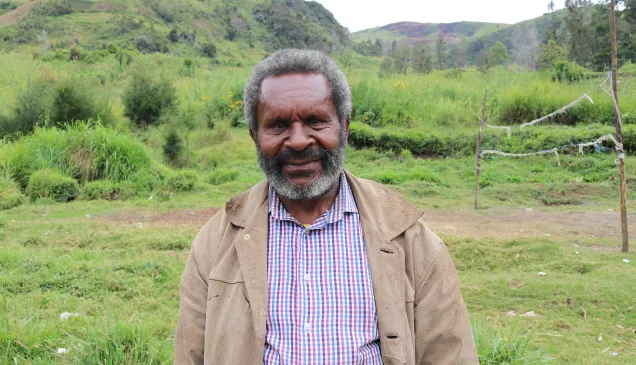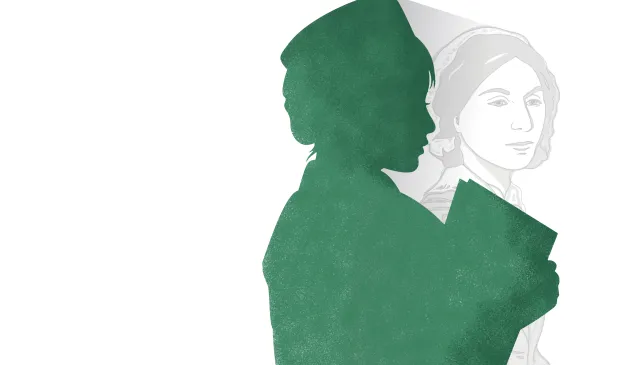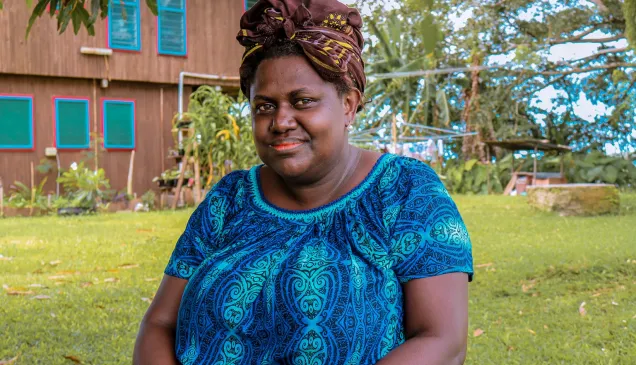Before a distribution can take place, everything must be unloaded on site. Local volunteers gave invaluable help to the Red Cross team.
Papua New Guinea: First distribution in Enga brings relief for families
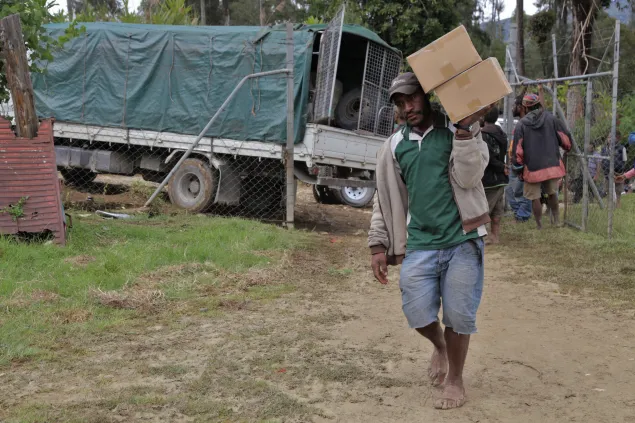
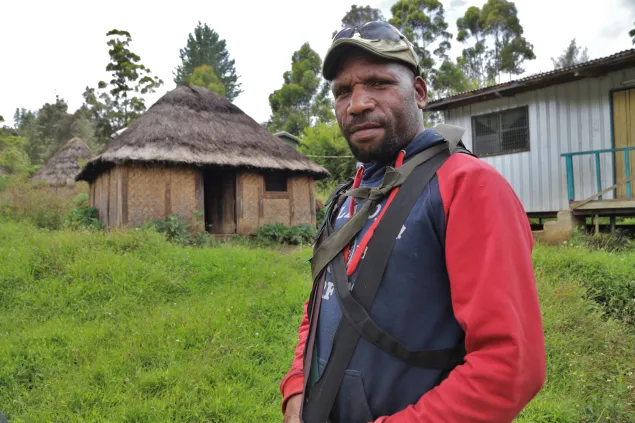
“They fought all the way up, came across the river and burned down our houses,” said Kasmi Michael, an Andati man speaking of the day the Talyul attacked Kepelam. “My father ran outside and died here in the village." Both of Kasmi’s houses were destroyed. “I’m worried. Because it takes a long time to build a house.”
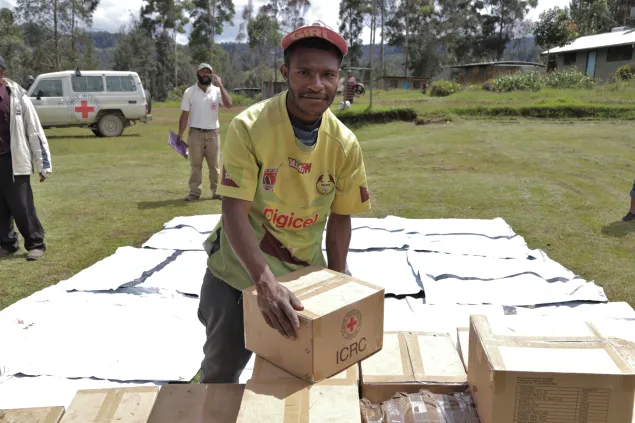
A local volunteer stacks boxes of kitchen tools in Kepelam. Kits are then assembled in piles, awaiting collection by the families.
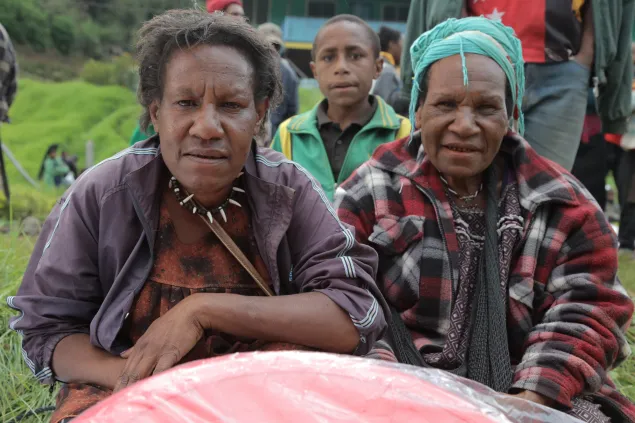
Judi’s home in Landelam was burned to the ground. She was forced to flee to stay with relatives in Enga’s provincial capital of Wabag. “I didn’t think this could happen to us. We lost everything, even our clothes.”
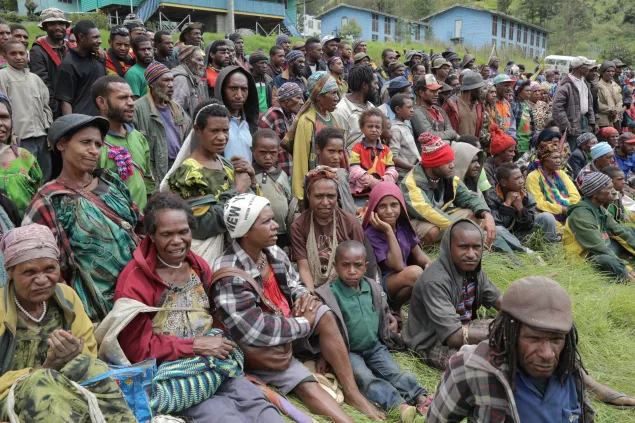
The crowd that gathers in front of the distribution area in Landelam.
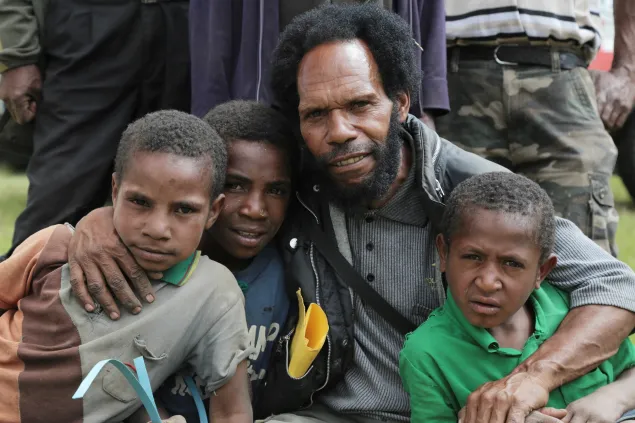
Peter Nevare is one of the Sikir clan’s “big men". “Roughly 50 to 60 houses burned down. I was very sad. When I saw my house burning, smoke rising from that side, tears fell…” Now living with relatives in the Andati clan, he is determined to build a new home for his children. “The life I’m living here is, what can I say? It’s not OK, it’s not suitable for me to live here. My proper place, my house – everything is destroyed.”
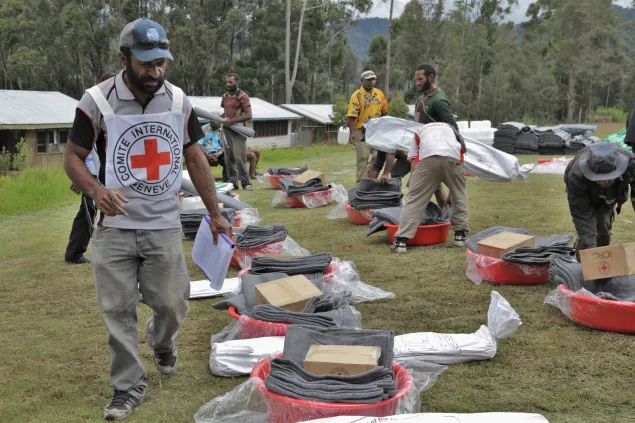
Our fleet manager in Mount Hagen, Eddie Wimbera, checks kits as they are laid out on the grass, ready for collection.
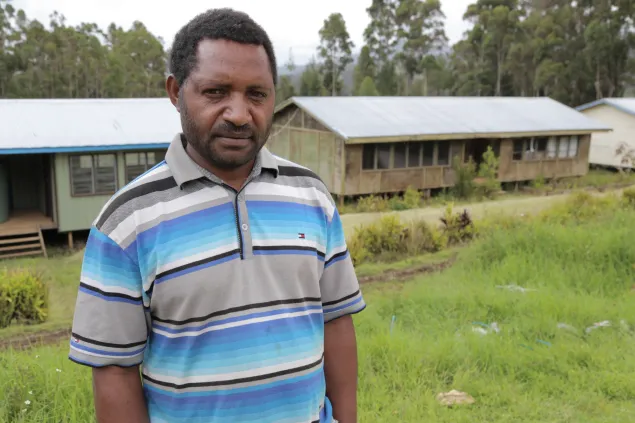
Andati clan member Arex Kapa is a teacher at Kepelam Primary School, which has been closed since March last year. “Most of the students who used to attend this school were from the sub-clans who were fighting… there’s no education for children because of the tribal fight.”
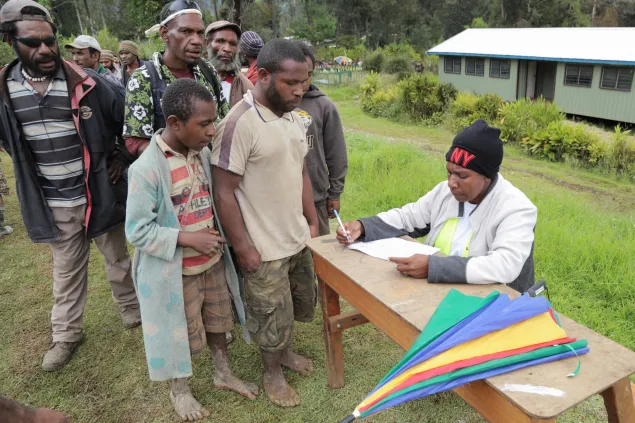
Julie Micheal has been a volunteer for the PNG Red Cross Society for 14 years. “I’m from Enga. I’m proud to do something good for the people here,” she said. Here she mans the registration table as people wait their turn to collect a kit.
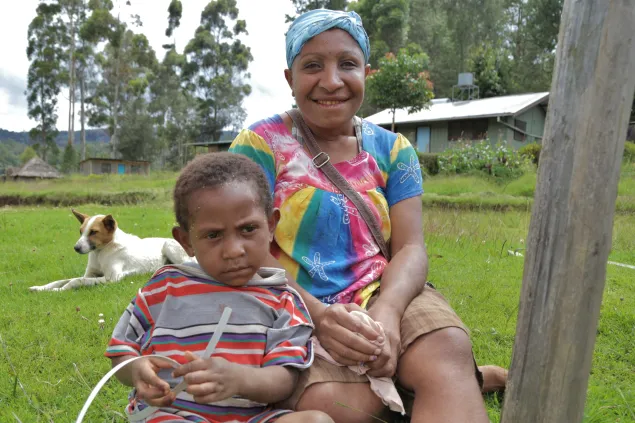
Andati clan member Michelle’s family lost three houses, with all their possessions. They had to take shelter in the school. “I miss my old home,” she said.
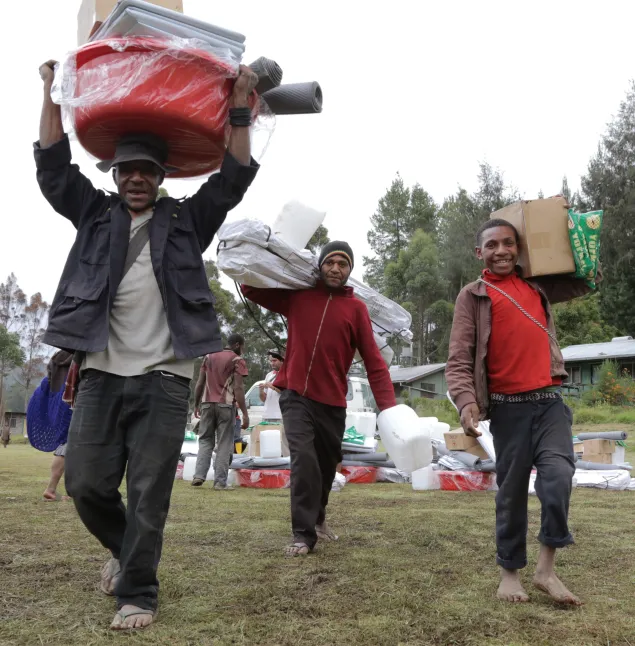
The men of one family carry their kits from the Kepelam site.
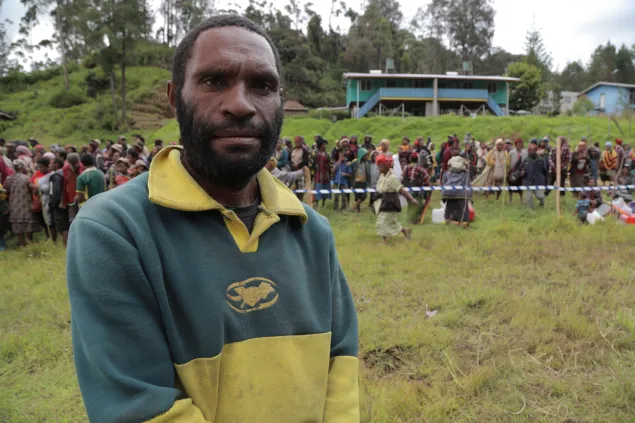
Benedict Angon, of the Talyul clan, lost all his pigs (a symbol of wealth in Papua New Guinea) due to the fighting. “Our domestic animals, which we sell to get money, were all slaughtered. This is pig time. It’s election season. It’s a very good time, and I should have sold them and made some good money. The garden produce that we sell at markets to get money was also destroyed.”
Benedict told us of his hopes for the future: “Fighting is a part of culture in Enga Province. Change will only take place when people’s mindsets change. I anticipate that one day things will change in my life and I will become the agent for change in this area."
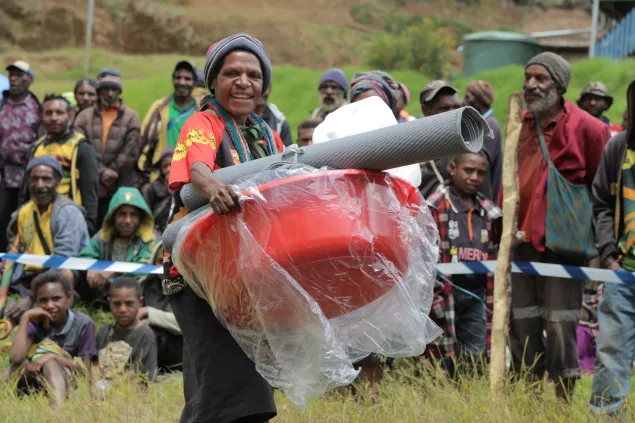
Each kit contains household items, shelter and tools that support families to get back on their feet.
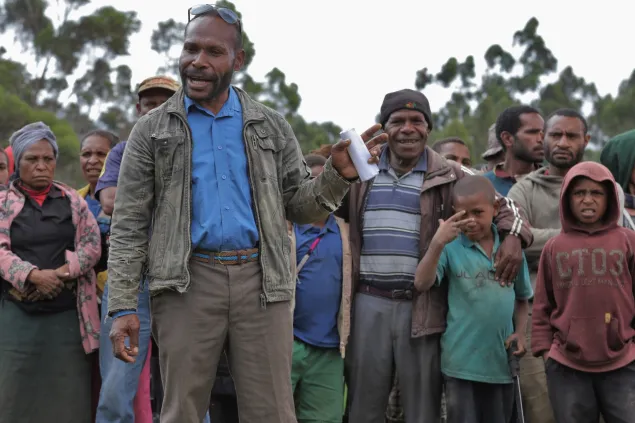
“We lost our pigs during the conflict so our life is hard now… What you have given us will really help.” Councillor Job Lari of the Sikir clan gives our team a word of thanks at the end of the distribution in Kepelam.
The ICRC recently carried out our first ever distribution of relief items in Pilikambi in Papua New Guinea's Enga Province, where communities have been affected by ongoing tribal fighting. While this kind of warfare has always been part of the culture of the PNG Highlands, modern war weapons are increasingly available to fighters, making conflicts far more deadly than ever before.
One of the most serious fights took place last year in Pilikambi. A conflict that pitted the Sakir clan against the Talyul left more than 20 people dead and resulted in the burning of around 500 homes. A third clan, the Andati, were also affected: after the Sakir fled and took shelter with them, their homes were destroyed too.
Last week, with some essential help from our friends in the Papua New Guinea Red Cross Society, we carried out simultaneous distributions of relief items in the villages of Kepelam and Landelam to the three affected clans. Each kit consisted of things needed to help families get back on their feet: kitchen items, shelter kits and tools to rebuild homes. The culmination of more than four months' planning, the distributions saw 527 households receive 757 relief kits.
This gallery gives an insight into the lives of the people affected, and how the distribution unfolded.

